| Chris Ryba-Tures |
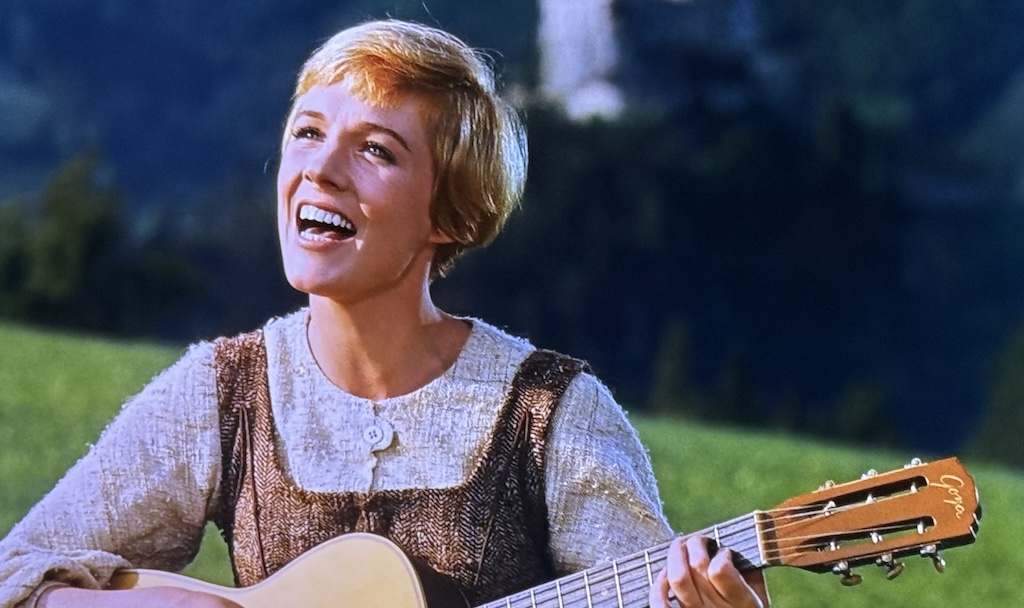
The Sound of Music plays for one day only at the Heights Theater on Sunday, July 20th, as a collaboration on our Nazis…We Hate These Guys! series.
It’s taken me a long, long time to admit this to myself: hating stuff isn’t very cool. Hating something, especially when you make that hate part of your personality, a talking point at parties, a fulcrum to get a rise out of folks, is pretty tedious, exhausting, and boring, isn’t it? Well, unless what you’re hating is something totally hateable like, say, Nazis. I think at least half of our country can agree that hating Nazis is actually pretty cool, and I don’t plan on surrendering that specific hate, like, ever.
Other petty hatreds that I’ve championed over the years, thankfully, I’ve outgrown. Most of them were pretty ridiculous—89.3 The Current (generally), Wilco (specifically), Disney Adults, neck tattoos, putting cream in coffee, people who say “Bro” ironically, people who say “Bro” in earnest. It’s exhausting to keep these hateful fires burning. Besides, no one really cares, not even the internet trolls, and it feels good to be rid of them.
However, there is one hateful flame I’ve covetously kept blazing without reprieve: my hatred of musicals. Movie musicals in particular. The Drama Club enthusiasm, the hyper-articulation, the why-talk-when-we-can-sing dialogue, the dance fighting, the whimsy. So much whimsy. Look, I know they can’t all be Cure or Portrait of a Woman on Fire or Moonlight, but come on, man. Mama Mia? Why not just listen to ABBA? What the hell is actually going on in Cats? How long do you expect me to endure Wicked? Lin Manuel gets a conditional pass for Moana (because it makes me insta-cry), but three bars of any song from Hamilton has me running for my Public Enemy records to drown it out. With more than enough fuel for the bitter fire, I thought this musical hate would last forever.
That is, until I heard, saw, was thoroughly delighted, and enchanted by The Sound of Music earlier this summer. Much like the mirthless Baron von Trapp (Christopher Plummer), I wasn’t prepared for such a sudden, holistic change of tune. It wasn’t just Julie Andrews’s pixie-cutted Maria, the compulsively singing nun and juggernaut of charm and charisma. Nor was it one breathtaking vista after the next, the lightfooted pacing, or the “Edelweiss” (my goodness, the “Edelweiss”). It was all of those things, but it was bigger than that. The Sound of Music is one of those movies claiming such a massive and enduring cultural impact that it feels like we’ve seen it even when we haven’t. And, if you’re like me and have managed to avoid it most of your life, when you finally do see it, it’s amazing how justified that impact truly is.
Robert Wise’s 1965 epic cinematic adaptation of Rodgers and Hammerstein’s 1959 stage adaptation of Maria von Trapp’s 1949 memoir The Story of the Trapp Family Singer (got all that?)—a story of an incorrigible nun sent to govern the equally incorrigible brood of a widowed Salzburger Baron around the time of the Nazi annexation of Austria—is a gorgeous, infectiously optimistic, and yes, musical, immersion into joyful rebellion against authoritarian oppression in the home, church, and state. And, honestly, I fucking needed that right now. I think a lot of us do.
The following are a few of my favorite things from my first of what I anticipate will be regular, probably annual, viewings of The Sound of Music.

Setting the Scene for the Big Screen
There are lots of movies that I don’t mind seeing for the first time at home on our 48” screen TV. Comedies, for sure. Anything from the so-bad-it’s-good (SOBIG) camp. Mumblecore stuff and most slice-of-life indies. But a movie as magnificently backdropped as The Sound of Music? The the fuck out of Salzburg.
Set in the aforementioned hometown of Mozart, amongst the Central Eastern Alps of Austria, every shot behind the gilded opening credits is breathtaking in natural majesty, splendid in architectural beauty, and nothing short of stunning when the two are combined. These feelings are taken to even greater heights by the score: a triumphant, instrumental rendition of “The Hills Are Alive,” which, even on first viewing, I feel I can mumble-scat-along to. It all hits massive, with a substantive reality that beckons you to run madly into the rolling fields and endlessly climbing peaks.
Whether the cast is wandering hillsides or climbing trees, lounging on sun-drenched patios or in moonlit gardens, singing in public halls or hiding from Nazis in convent crypts, the spaces and the people navigating them effortlessly draw you into their richness. So, sure, you can watch it on your phone or laptop, but this was clearly intended for the silver screen. And, like large-scale epics like Lawrence of Arabia, The Lord of the Rings, and 2001: A Space Odyssey, The Sound of Music demands to be experienced in a theater.
Joy as an Act of Resistance: Nuns Behaving Badly
From family-friendly fare to raw-boned nunsploitation, I love a movie where mischievous nuns wreak havoc on the status quo. Whether it’s wholesome, like Mary Clancy burning down heaters in The Trouble with Angels and Sister Mary Clarence’s pop-infused hymns in Sister Act (wait, is THAT a musical?), or tawdry, like Sister Manure’s Predator-style LSD trips in Dark Habits and the who-could-blame-her sexual ecstasy Sister Jeanne in The Devils, nuns behaving badly in cinema have a singular way of challenging institutional hypocrisy in pursuit of individual freedom.
The Catholic Church, and more specifically a Catholic Convent, is a perfect pressure cooker to explore the reactive consequences of patriarchal and religious oppression. While The Sound of Music really couldn’t be further from nunsploitation, Julie Andrews’s Sister Maria is a key player in a proud cinematic tradition of rebel nuns allowing some aspect of their individuality to become a problem at the convent, disrupting the peace, and, ultimately, fighting the system with the limited tools available to them. Her incessant singing is the “problem” in play here. The angry nuns in charge even sing a song about it (the hypocrites). And how do they fix it? They do what all Catholic authorities do with problem clergy—they reassign her to a position outside of the convent.
While at first it seems like a punishment, Maria’s irrepressible joy and self-expression liberate her from her religio-patriarchal oppression. Yes, she’s still a nun, but we all pretty much forget about that the minute she leaves the convent. She’s very un-nunny, which is a big part, in my opinion, of what makes her so impossibly charming. I’ve known too many very nunny nuns, and I’ll have nothing more to do with them. None.
Maria’s unbound joy is the engine of resistance, the catalyst of change, a force of nature pulsing at the heart of The Sound of Music and driving all of our heroes forward into their destinies. Unleashed on Salzburg, she becomes a kind of freedom fighter, arming the people all around her with music and song to battle other forms of oppression. It is because of this “bad behavior” that the von Trapp children can break from their militaristic home rule and find their voices, their childhoods, and their joy. It is because of this bad behavior that Baron von Trapp, in turn, can find his true voice, his true love, and his purpose. And, ultimately, it is because of this bad behavior that the von Trapps can stand together and escape the Anschluss, the Nazi annexation of Austria.
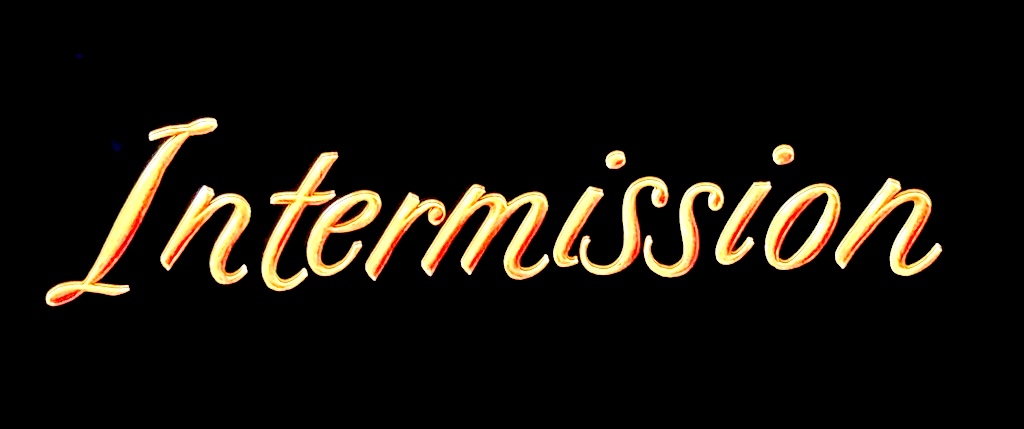
Intermission
Any movie over two-and-a-half hours long should have an intermission. Even a movie as deftly paced as this one, which clocks in at two hours and fifty-two minutes. As our last presidential president once said, “Benefits everybody. Hurts nobody.” What a treat.
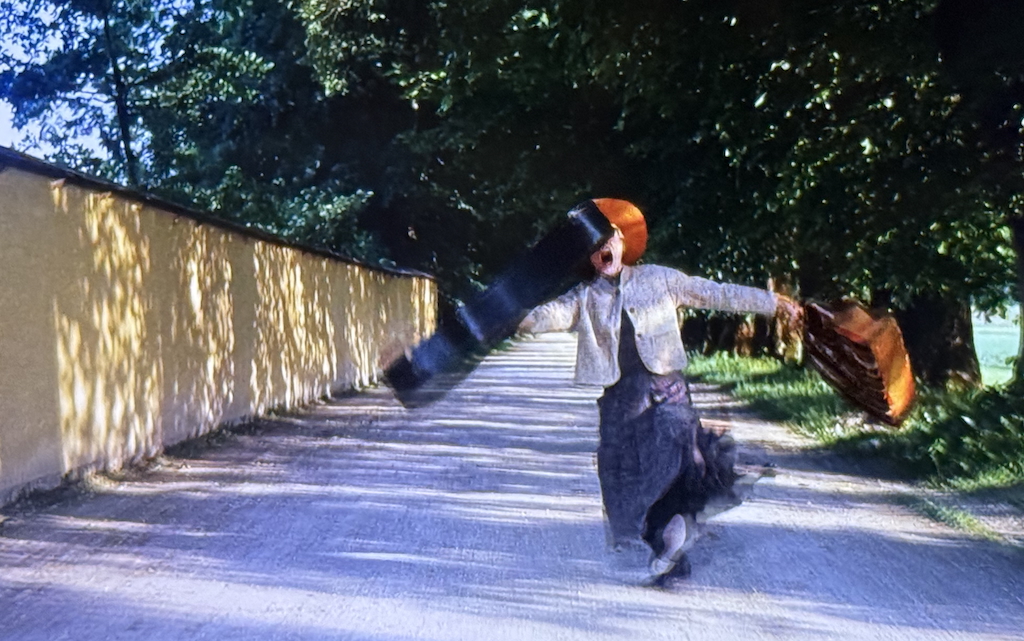
Nunhinged: Maria Cannot Be Contained
I live on a stretch of George Street regularly frequented by eccentrics—the curiously outfitted, the loudly expressed, the unburdened by propriety, the wild-eyed and the hounded-by-demons types. Some mutter and gesture intensely, some curse the heavens or particularly offensive yard signs, others explode in sudden bursts of karate or song. Many, nearly all, shout at something or someone, at some point. The projection of a howl, the threat of a roundhouse kick—that energy can occupy a great deal of space and demand an awful lot of attention. And, while George Street is a major West Side thoroughfare, most of these travelers, whether they intend it or not, are putting on a one-person show on an otherwise pedestrian-free street.
“I Have Confidence,” Maria’s rousing anthem to facing one’s fears and summoning the chutzpah to take on a task hitherto thought impossible, would be right at home on George Street. I’d love to see it. Hell, I’d love to perform it myself. Off she goes, marching down the middle of the road in her giant hat to her first-time governess assignment at the von Trapp Barony, singing at the top of her lungs, wildly swinging her guitar case and overnight bag, between spins, shrugs, trips (unintended), and jumping heel clicks.
Can the rest of the village hear the music she’s hearing? If it’s anything like George Street, probably not. But they sure can hear her singing. To the nosy Salzburger neighbor, this woman with the big hat and guitar case has probably lost her schnitzel and is worth keeping a glaring eye on.
And yet, if they were to listen to the words like we the enchanted viewers are, they’d notice there’s something real, something lucid, something enviable in this unhinged one-woman show. Maria has nothing to apologize for. Haven’t you been watching? Haven’t you been listening? She has confidence in herself. More than most of us ever will. Whether she’s just getting psyched up or going completely off the rails is immaterial. She sings:
All I trust I leave my heart to
All I trust becomes my own!
I have confidence in confidence alone!
I have confidence in confidence alone!
Besides, which you see
I have confidence in me!
She’s not just singing to herself, she’s singing to Jesus H. Christ, all of Salzburg, and each and every living hill. She doesn’t just have confidence—she IS confidence. She cannot be contained by a convent, the rules of the von Trapp house, or even the Third Reich. This street and our hearts belong to her. We can all have confidence in that.
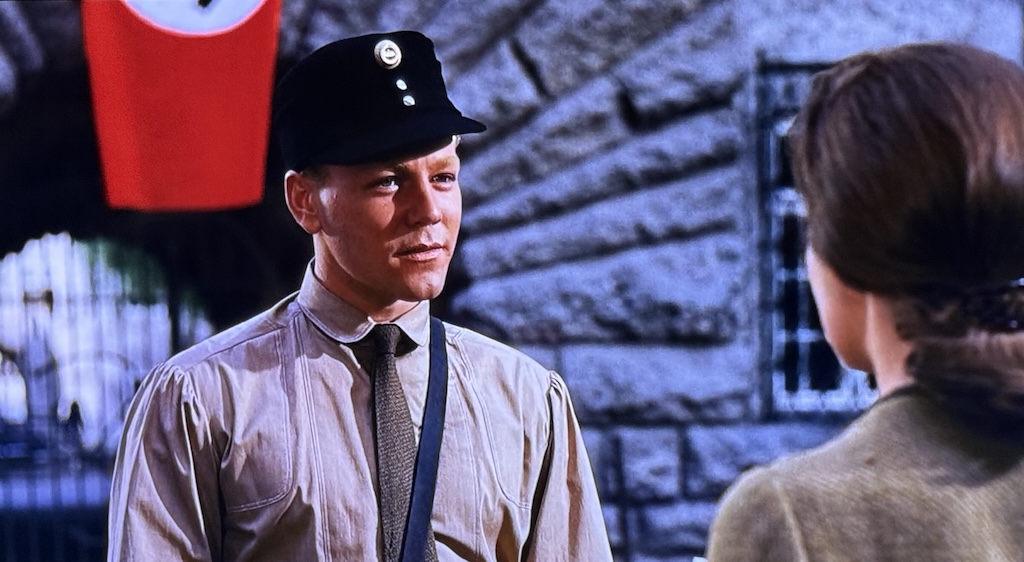
The Nazi Next Door: It Ain’t All Raindrops and Roses and Whiskers on Kittens
While the majority of The Sound of Music is thoroughly bright, beautiful, and charming, the Nazi presence looms large, with its terrible shadow darkening the climax of the film. But prior to that, and I find far more chilling, is the insidiousness of Nazi authoritarianism taking hold of government functionaries, civil servants, and townsfolk all around the von Trapp family like a slowly tightening, black-gloved fist.
We see the transformation most clearly through the eyes of the eldest von Trapp child, Liesl, who is a young woman (“sixteen, going on seventeen”) enjoying a budding romance with the local mail carrier, Rolf. Rolf, simultaneously, is experiencing a budding romance with the Third Reich. We watch, sharing Liesl’s bafflement and horror, as the once sweet, almost shy, boy-next-door begins espousing Nazi rhetoric with the kind of boldness cowards channel from hateful ideologies. We, like Liesl and the rest of the von Trapps, have a hard time accepting that the Rolf we knew is no longer somewhere inside this freshly minted Nazi automaton, particularly at a key moment during the von Trapp’s escape from Austria.
Like many of you, I’m encountering more and more Rolfs as fascists find comfortable seats in the halls of our government. I’ve witnessed my neighbors, colleagues, people I’ve held in a reasonably pleasant esteem tack up “We the People” signs, slap “Don’t Tread on Me” and “Blue Lives Matter” stickers on their cars, make excuses for bigoted politicians who share thinly veiled hateful points of view in Teams meetings at work. People I thought I knew. People whose tunes have changed, gotten louder, more aggressive. People who note that you’re flying the wrong kind of flag in front of your house. People aligning with the prevailing party of hatred. I’d like to think the people I thought they were are still in there. But then again, Rolf eventually chose a side, didn’t he?
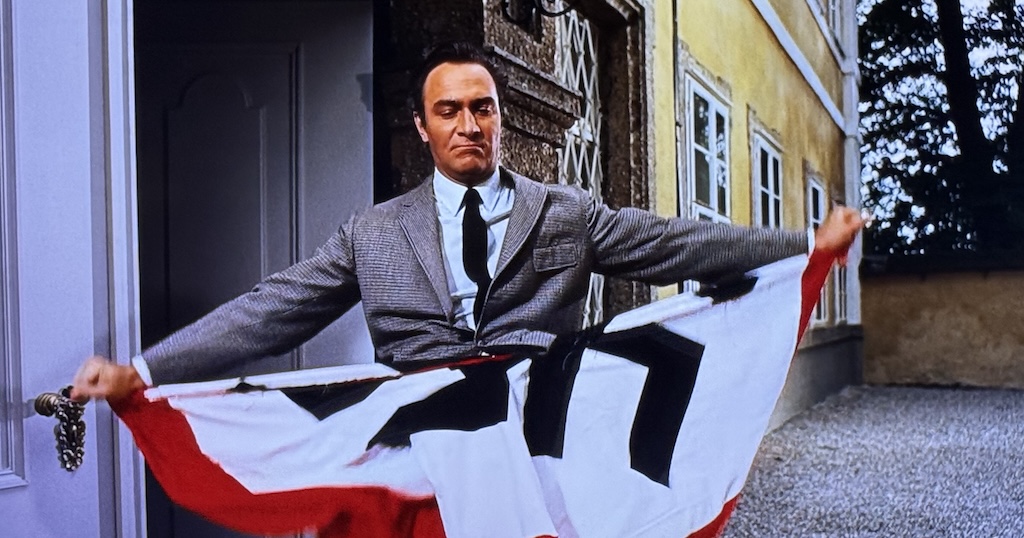
I leave and heave a sigh and say goodbye.
It’s a good time, I think, to remember that hatred—even something seemingly frivolous as a musical—isn’t cool. In fact, even the smallest dose of hatred is downright corrosive to who we are as people, individually and as a nation.
I’m not saying going to see The Sound of Music as soon as possible, maybe singing yourself down the street to get there, can combat the staggeringly overwhelming hate staring us down as a country right now. But it couldn’t hurt.
Edited by Olga Tchepikova-Treon
